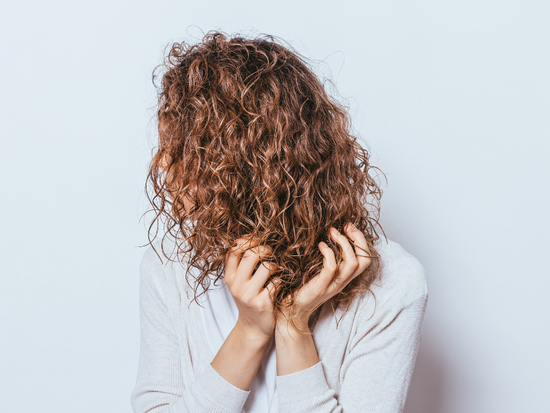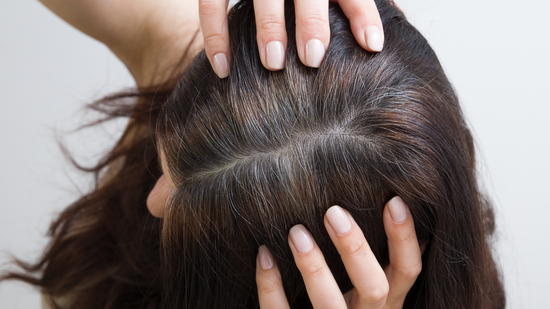
Stimulate hair growth with holistic scalp care
Full, shiny hair is a byword for health and beauty in our society. Men and women suffer all the more when hair falls out or hair growth is restricted. Hair...
Hereditary hair loss in the form of thinning hair or a receding hairline
Puberty, stress and vitamin deficiency
Bald, partially patchy and circular areas on the scalp due to illness
Hair is an important part of our appearance and can have a huge impact on our self-confidence. Teenage hair loss is an issue that is often associated with shame and insecurity. Many teenagers feel embarrassed and isolated when they notice their hair is thinning or falling out. A hair growth specialist can lead the way in proper analysis and care application to reduce hair loss and promote hair growth.
Genetic predisposition
Hair loss in teenagers can have various causes. One of the most common causes is genetic predisposition. Many people think that hair loss is a problem that mainly affects older people. But teenagers can also be affected.
If a parent suffers from premature hair loss, it is possible that the child has inherited the same gene and will also suffer from hair loss. Hereditary hair loss in teenagers can take different forms, such as thinning hair or a receding hairline. This can be particularly stressful for teenagers because appearance plays a big role during puberty.
It is important for parents and teens to be aware that genetic hair loss usually cannot be completely stopped. However, various care options can be used to try to stop or slow down excessive hair loss.
Hormonal changes during puberty
During puberty, adolescents experience many physical changes, including the production of hormones such as estrogen and testosterone. These hormonal changes can affect the hair cycle and cause temporary hair loss. Hair loss during puberty rarely leads to permanent hair loss.
Hair growth usually repeats itself in a cycle consisting of growth, rest and shedding phases. However, the hormonal changes during puberty can temporarily affect the cycle and lead to increased hair loss. A hair growth specialist can offer support and, through competent care advice, present different application options to promote hair growth.
Stress and psychological strain
When a teenager is under stress, the body releases stress hormones, such as cortisol. These hormones can affect the hair cycle and disrupt hair growth. The hair cycle consists of three phases: growth phase, transition phase and resting phase.
Stress can cause hair to retreat into the resting phase more quickly, which can lead to hair loss. Psychological stress that often occurs during puberty, such as anxiety, depression or eating disorders, can also cause hair loss. Inadequate nutrition due to eating disorders can prevent the body from receiving enough nutrients that are important for hair growth.
It is important that teenagers learn to cope with stress and psychological distress to reduce the risk of hair loss. A balanced diet with supplements, regular exercise and relaxation techniques such as yoga or meditation can help reduce stress and promote hair growth. However, if hair loss persists, we recommend contacting a hair growth specialist in your area .


During adolescence, appetites are often high and the temptations of fast food chains seem to be lurking everywhere. But this one-sided diet can have serious consequences. Teenagers often have increased nutritional needs due to their rapid growth and hormonal changes.
A deficiency of these nutrients can lead to hair problems such as hair loss and hair brittleness. To counteract this, teenagers should primarily consume nutrients such as iron, zinc or B vitamins. This can be a particular problem for young women in particular, because menstruation can cause the body to lose additional iron.
Likewise, a lack of vitamin D, C and biotin can lead to hair loss. A balanced diet with adequate intake of vitamins and nutrients is therefore important to avoid hair loss in teenagers. A hair growth specialist can provide you with more comprehensive information and support
Illnesses and medications can cause hair loss in teenagers just as they do in adults. A common condition that can cause hair loss is alopecia areata. This autoimmune disease, classified by conventional medicine, causes a malfunction of the immune system to attack the hair roots and thus leads to hair loss. This creates circular and oval bald spots. In teenagers, this form of hair loss often occurs suddenly and can occur in both boys and girls. Even with circular hair loss, scalp care is an important care measure to maintain and promote hair growth.
Sometimes certain medications can also affect hair loss in teenagers. These include medications for acne such as isotretinoin and others. Above all, chemotherapy drugs used to treat cancer often cause hair loss.
Hair usually grows back on its own after chemotherapy. If, contrary to expectations, the hair comes back in poorer quality than before or does not come back at all, it may make sense to consult a hair growth specialist . They can recommend individual care solutions and possible applications to stimulate hair growth again.


Full, shiny hair is a byword for health and beauty in our society. Men and women suffer all the more when hair falls out or hair growth is restricted. Hair...

